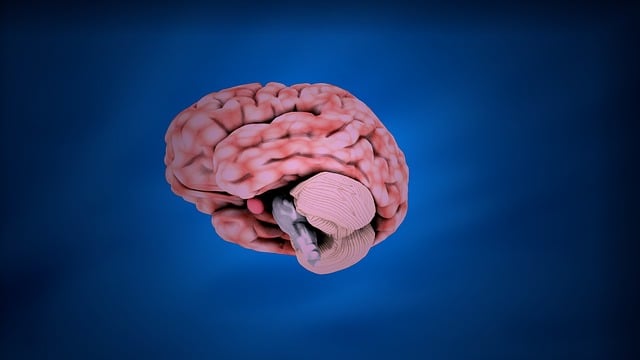Depression is a serious mental health condition requiring early professional intervention. For survivors of sexual abuse, specialized support like Arvada Sexual Abuse Survivor Therapy (ASAST) is vital for healing and preventing conditions such as depression. ASAST utilizes evidence-based practices like CBT and EMDR to help process trauma, challenge negative thoughts, and regain safety. Self-care routines including exercise, diet, sleep, mindfulness, and journaling are powerful tools against depression, as promoted in Arvada sexual abuse survivor therapy. Building a strong support network of family, friends, and peers, along with integrating mental health awareness programs, further reduces the risk of depression.
Depression is a prevalent yet manageable condition, especially with the right strategies. This article explores various approaches to prevent and combat depression, focusing on the unique needs of Arvada sexual abuse survivors. We delve into recognizing warning signs and symptoms, emphasizing the significance of therapy and support groups tailored for this community. Additionally, lifestyle adjustments, building supportive networks, and knowing when to seek professional help are highlighted as essential tools in the fight against depression, offering hope and healing to those affected.
- Understanding Depression: Recognizing the Signs and Symptoms
- The Role of Therapy and Support Groups for Survivors of Sexual Abuse in Arvada
- Lifestyle Changes to Boost Mood and Preventive Measures
- Building a Strong Support Network and Seeking Professional Help When Needed
Understanding Depression: Recognizing the Signs and Symptoms

Depression is a complex mental health condition that significantly impacts an individual’s daily life and overall well-being. Recognizing the signs and symptoms is crucial for early intervention, which can be life-changing for those struggling with depression. Common indicators include persistent feelings of sadness, loss of interest in activities once enjoyed, changes in appetite and sleep patterns, fatigue, difficulty concentrating, and thoughts of worthlessness or suicide. These symptoms may vary from person to person, and it’s essential to seek professional help if they persist for more than two weeks.
For individuals who have experienced sexual abuse, such as those seeking Arvada Sexual Abuse Survivor Therapy, the journey towards mental wellness can be particularly challenging. The impact of trauma can lead to increased vulnerability to depression and other psychological disorders. Therefore, alongside traditional therapy approaches, engaging in activities like Mental Wellness Journaling Exercises or enrolling in Mental Wellness Coaching Programs can offer tailored support for healing and development. Additionally, burnout prevention strategies are essential as these practices promote self-care and resilience, enabling individuals to navigate their mental health challenges effectively.
The Role of Therapy and Support Groups for Survivors of Sexual Abuse in Arvada

Arvada Sexual abuse survivor therapy plays a pivotal role in the mental health journey of those who have experienced trauma. Professional therapy provides a safe space for survivors to process their emotions, memories, and reactions, helping them work through the complex aftermath of sexual abuse. Trained therapists utilize evidence-based practices like cognitive behavioral therapy (CBT) and eye movement desensitization and reprocessing (EMDR) to facilitate healing. These therapeutic approaches aid in challenging negative thought patterns, managing distressing symptoms, and rebuilding a sense of safety and empowerment.
Support groups for Arvada sexual abuse survivors offer an additional layer of support and community. Sharing experiences and connecting with others who have faced similar challenges can reduce feelings of isolation and provide valuable peer-to-peer support. These groups foster a culture of understanding, encouragement, and resilience, promoting the development of healthy coping mechanisms. Moreover, participating in self-care routine development for better mental health, social skills training, and increased mental health awareness are integral components of post-traumatic growth and recovery for sexual abuse survivors in Arvada.
Lifestyle Changes to Boost Mood and Preventive Measures

Making lifestyle changes can significantly boost mood and serve as preventive measures against depression. Engaging in regular physical activity, maintaining a balanced diet, and prioritizing quality sleep are essential components of this approach. Exercise releases endorphins, which act as natural mood boosters, while proper nutrition ensures your body receives the necessary nutrients to support mental health. Adequate rest is also crucial, as it allows the brain to recover and maintain emotional balance.
Additionally, implementing self-care practices such as mindfulness meditation, journaling, and spending time in nature can be empowering. These activities promote self-awareness, empathy building strategies, and conflict resolution techniques, which are particularly beneficial for those who have experienced traumatic events like Arvada sexual abuse survivor therapy. By incorporating these lifestyle changes, individuals can build resilience, enhance their coping mechanisms, and proactively safeguard their mental well-being.
Building a Strong Support Network and Seeking Professional Help When Needed

Building a strong support network is an essential part of depression prevention. This includes fostering healthy relationships with family, friends, and peers who can offer empathy, understanding, and practical help when needed. Connecting with others provides a sense of belonging and can help combat feelings of isolation, which are key risk factors for depression. Additionally, seeking professional help when facing significant challenges, such as sexual abuse or trauma, is crucial. Arvada Sexual Abuse Survivor Therapy, for instance, offers specialized services designed to promote emotional well-being through therapy, counseling, and other evidence-based practices tailored to address the unique needs of survivors.
Integrating mental health awareness and education programs into daily life can further empower individuals to take proactive steps in maintaining their mental health. These programs, often designed with a focus on mental health education programs design, teach coping mechanisms, stress management techniques, and emotional regulation skills, all of which contribute to long-term emotional well-being promotion techniques. By combining these support systems and resources, individuals can build resilience and better navigate life’s challenges, thereby reducing the risk of developing depressive disorders.
Depression prevention is a multifaceted approach, especially for those who have experienced sexual abuse. In Arvada, recognizing the signs of depression and understanding the unique needs of sexual abuse survivors is crucial. Therapy, support groups, and lifestyle changes can significantly improve mood and overall well-being. Building a strong support network, including professional help when needed, is vital in navigating this journey. For individuals seeking aid, Arvada Sexual Abuse Survivor Therapy offers specialized care, emphasizing the importance of addressing past trauma to foster healing and resilience.














